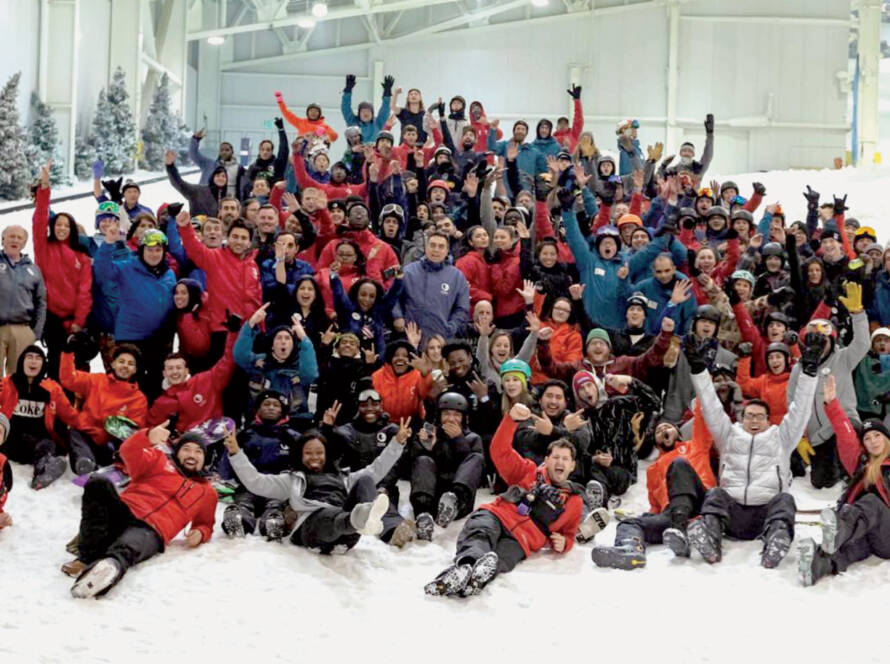Working in the mountains isn’t for everyone. Jacques Pelletier, president and founder of Mountain Hire, knows that well. Since 1995, his company has specialized in boutique executive recruiting services for ski resorts across the U.S. When it comes to matching the right candidate with the right job opportunity, Pelletier relies heavily on his extensive database – a gold mine of information and contacts going back nearly three decades.
“We’re filling middle- to senior-level management positions across all divisions, so department heads and above across the country – not line positions,” he said in an interview with SnowOps. “We also get involved with some manufacturers of snowmaking and [snow] grooming equipment who are looking for sales and marketing people in the U.S.”
Mountain Hire’s roots go back to 1990, when Pelletier owned a franchise hospitality recruiting agency in Boston. One day, he received an invitation to visit Killington Resort in Vermont.
“The CEO encouraged me to specialize in the ski resort industry. He said they needed someone who understands living in the mountains. They were finding people (to hire), but it was a lifestyle issue. A lot of people see living in the mountains as glamorous, but it’s actually a lot of work dealing with the elements. For families with kids, school systems often present commuting and busing issues. Sometimes, spouses can’t find jobs in their industries.”
Pelletier researched the ski industry for the next five years, making contacts and building his database.
Since launching Mountain Hire, his one-man operation has always emphasized personalized service. When a resort contracts him to find just the right person for a management position, he takes care to educate candidates about all aspects of relocation.
“I spend a lot of time helping candidates get to know the area, the geography, the real estate market, so they know what to expect. When I present someone to a client, they know a lot about the situation. If an application is confidential, I may just present a résumé and if my client is interested, we’ll do the homework from there.”
The location of the job is a big factor, says Pelletier. “People working in a location with a good school system and community, and proximity to a big city or airport, might not be inclined to go to one of the more remote areas.… On the other hand, some people love it.”
Other considerations high on candidates’ lists include compensation and the cost of living. “Compensation is usually less than they’d get in the city, but some places are even more expensive to live,” said Pelletier. “If it’s a resort community, it will have resort prices. Maine and New Hampshire are less expensive than Colorado and Utah, for example.
“Also, management-level candidates often have families and children, and that becomes one of the biggest concerns – moving their family.”
Pre-screening is the key to making the perfect placement. After consulting with his resort client to understand their hiring needs, Pelletier speaks with candidates at length about their background, work experience and what makes them tick. In the end, he might present two or three vetted candidates to a resort.
“I know my clients and what type of people will fit in. I can give you a list of people I’ve placed, who have been there for 10 years, and they are still there and happy.”

Over the years, Mountain Hire has worked with more than 100 ski resorts, many of them independent operations. Pelletier says it’s the smaller independent resorts who really need him to “tell and sell” their employment opportunities.
The ski business is a niche industry, and Pelletier knows it well. Since 1995, he’s built a database of more than 3,000 contacts, with a connection at almost every U.S. resort. From his office south of Boston, he makes it a priority to stay in touch via phone, email and text. Those connections are the bedrock of his success.
“When they get promoted, I congratulate them,” said Pelletier. “I keep very good notes on people so I know how old their kids are and what they are into. I let them know I’m watching their career advance, and if they’re looking to move, they often let me know. In fact, 90 percent of candidates I place are already in my database. If I run out of people to talk to, I’ll start cold calling and ask, ‘Who do you know for this kind of job?’ Before you know it, I have two or three candidates on a list.”
Pelletier provides a thorough dossier on each candidate, including their current compensation and job responsibilities. He stays involved throughout the hiring process, from initial candidate sourcing to checking references and even connecting candidates with local real estate professionals.
These days, some positions are harder to fill than others. Lift maintenance directors are scarce, for example. Mountain Hire keeps tabs on promising young people coming up through the ski industry ranks; although Pelletier says many of these people are already being groomed for “home-grown” promotions with their existing employer. As many CEOs move towards retirement, ski resorts are responding with an emphasis on promoting from within.
“Luring them away is a challenge,” said Pelletier. “It’s a continuous challenge to find people who are willing to move.”
For their part, candidates are looking for longevity. The ski industry is small, and if a position is open they often want to know why.
Like many tight industries, ski resorts are full of passionate people who love what they do. Pelletier says this is one of the biggest highlights of his job.
“These people work very hard; it’s a challenging business, but they love what they do. One of the more rewarding things is when I place someone in a position, and they call me a year or so later and say it’s the best move they ever made.”
As he looks toward his own retirement in five to seven years, Pelletier says not many people out there do what he does.
“I’ve had clients call me to say they hope I’m still around when they expect to hire. Others call me a couple times a year to stay current, discuss the state of the industry, etcetera. My contacts are the key to my success.
“For my clients, they know you get what you pay for.”




